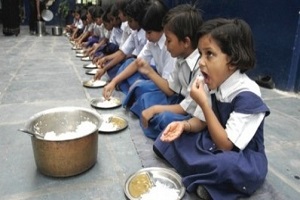
By Neelam Rahim
The University of Johannesburg is hosting a visiting professor from India who has been doing comparison research and the health implications of a developing country. The study shows that childhood undernutrition in India and SA, a common characteristic of developing countries, increases the risk of non-communicable diseases in adults, including type two diabetes, hypertension, and several cancers.
Radio Islam discusses with Prof Hema Kesa and visiting Indian Prof Angeline Jeyakumar, the assistant professor at the University of Pune in India’s Department of Food decision research laboratory.
Prof Hema tells Radio Islam that “Currently South Africa, falls onto the over nutrition and I’m going to go into the obesity problem that we found there, According to UNICEF and the South African demographic Health Survey, found that with children, we have about 13.8 children of South Africa and younger, that are suffering from overweight and obesity. And, I think it’s 7% of children stunted. And then on a household level of double burdens observed dissenters amongst children and overweight amongst the mothers in South Africa.”
Prof Angeline shares the Indian perspective on the issue of over and under nutrition, “that’s a very interesting concept that emerges when you look at the national statistics. Now, in developing countries like India and South Africa, we have this undernutrition among the vulnerable groups, mainly children under five years, that’s quite resilient. Any percentage of about 10 to 14% is considered a serious state of malnutrition or undernutrition. And if you see, the numbers among children under five years, are always above this critical percentage cut off. So we are not even close to 14. They are close to 30 and 35, which is more than double. And that is the serious state of undernutrition among children. And what you observe in the current National Health Service round is a 10% prevalence of available nutrition among children of the same age. So while we have policies to address under nutrition, the task is to address the rising open nutrition. And another interesting observation is that there is rising available nutrition among the adults as well.”
“I would advocate sustainable strategies. We are more into treatment strategies for any issue that we are facing. Whether it is under nutrition or all my micronutrient deficiencies, I think we must go back to nature. We have to go back to our traditional diet. We have to be more physically active. We have to use technology to improve science, but at the same time, we must be more physically active. And I think these are some sustainable strategies for preventing the double burden of malnutrition in developing countries,” says Prof Angeline.
For more about this, listen to Radio Islam’s podcast below.







0 Comments